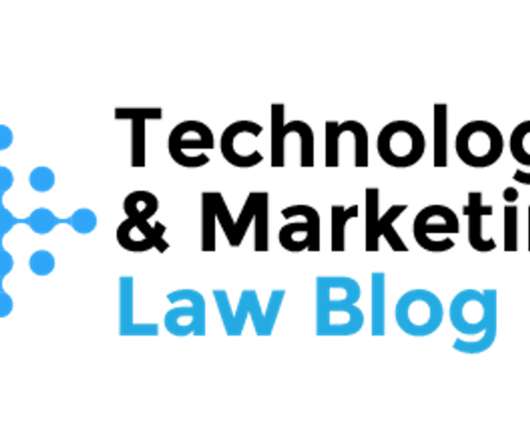Advertising injury policy's IP exclusion means ROP claims aren't covered
43(B)log
JUNE 26, 2023
The underlying lawsuit asserted misappropriation of images and likenesses for advertising purposes under state law; violation of the Virginia business conspiracy statute; and violations of the Lanham Act for false advertising and false association. The court concluded that the ROP is an intellectual property right.














Let's personalize your content